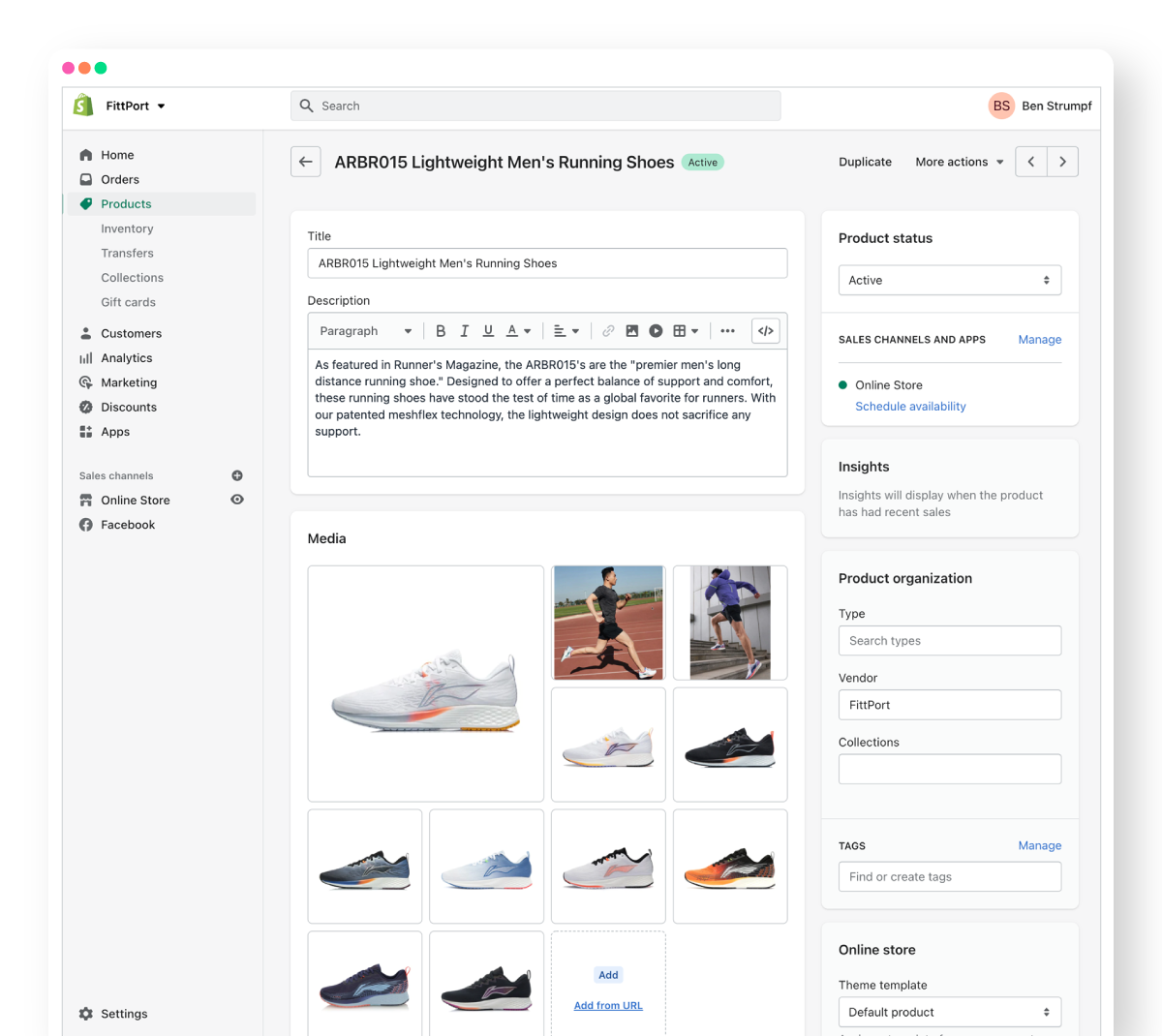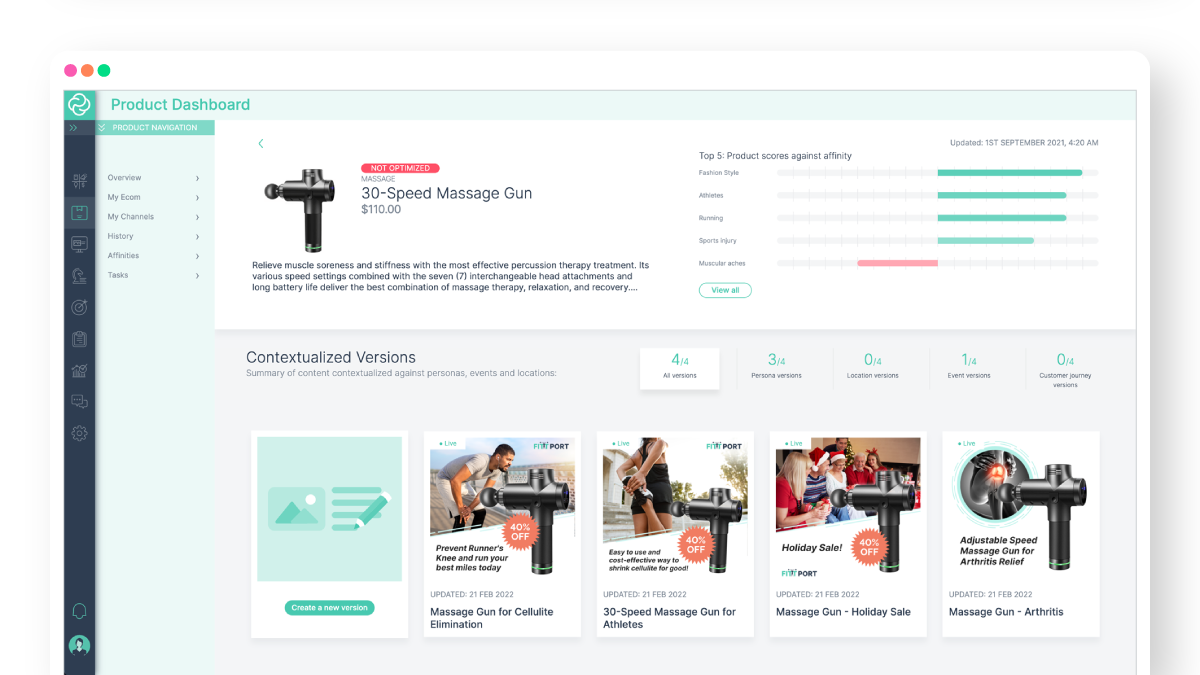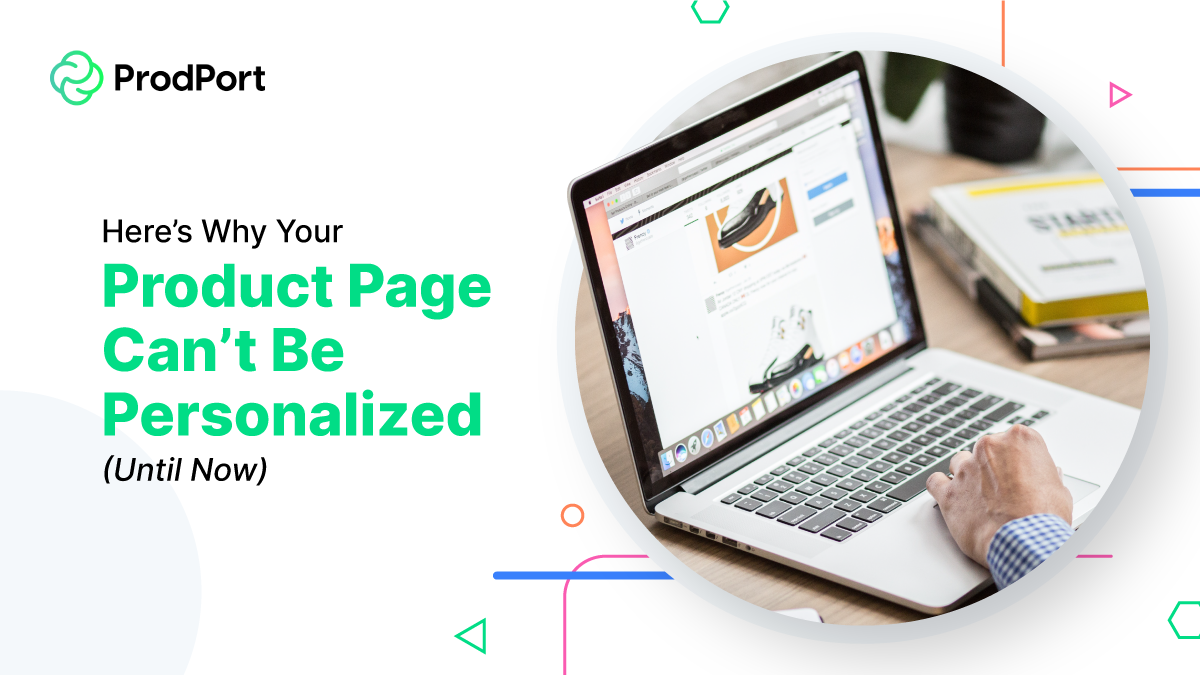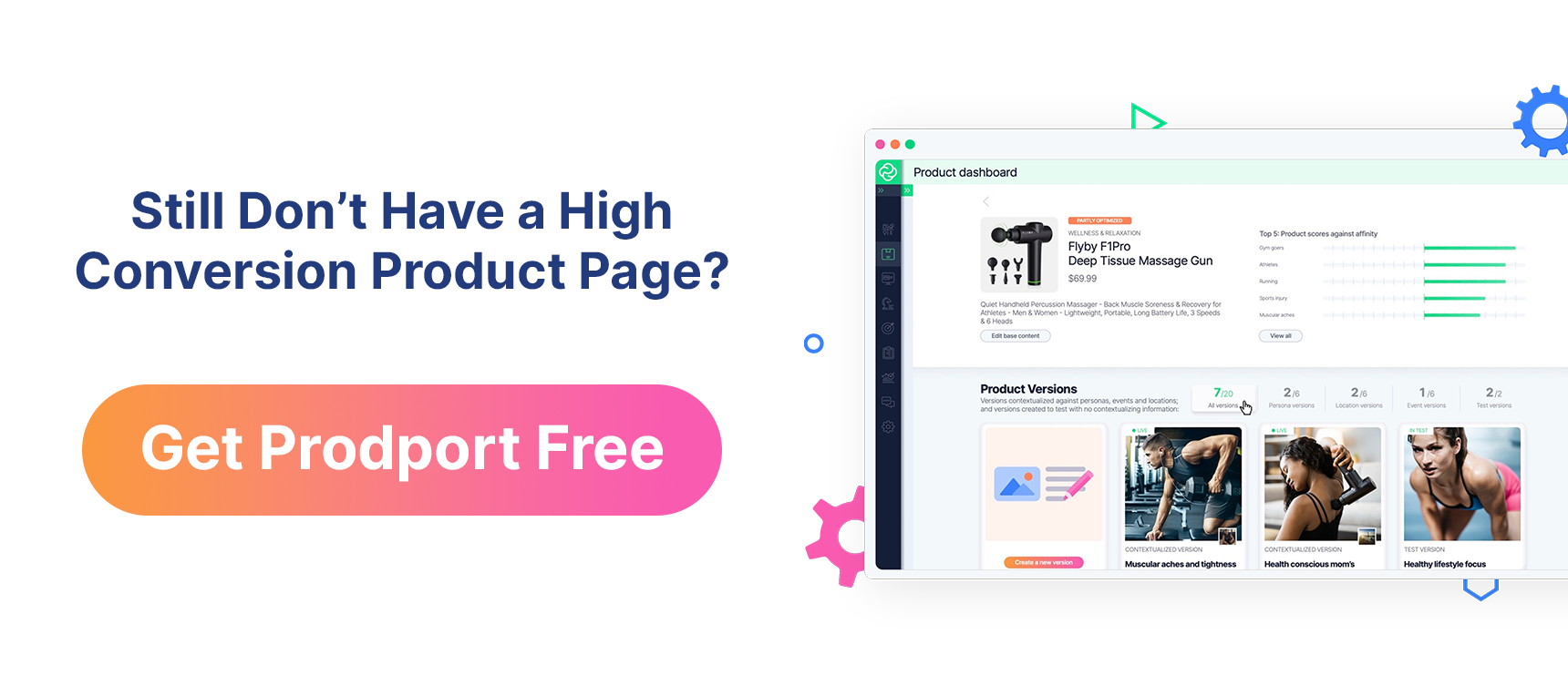All eCommerce purchase journeys have one thing in common—the final stop is the Product Detail Page (PDP). Regardless of where the user’s journey began (a homepage, a collection page, or a landing page), the crucial decision of whether to hit the “add to cart” button hinges entirely on what is on the PDP.
But here’s what’s crazy—to this day, the PDP remains the only page that isn’t truly personalized despite its large influence on buying decisions. No matter who views the PDP, the experience remains exactly the same. For example, my good friend and I both love a particular type of running shoes. He loves them because they have great support for long-distance runs, while I love them because they’re versatile enough to use on the treadmill, rower, and with weights. If we go into a store, the sales associate will take the same shoe and adjust the messaging if he’s talking to me as opposed to my friend. But when we shop online, we don’t get that personal touch, and instead are met with identical experiences.
It’s definitely odd, but there’s a reason for this. You see, aside from being complex on the technical side of things, eCommerce platforms are simply not designed to allow dynamically adjusting PDP content to suit individual users. When you log in to your eCommerce platform (e.g., Shopify, Magento, etc.), you are only given one authoring experience per product.
Let’s say I want to author these running shoes in Shopify. Here’s what it looks like:

This same set of images won’t really have the same appeal for someone who runs marathons, or someone interested in cross-training. Even so, I have to make do with a one-size-fits-all approach, where I need to either 1) favor one type of customer; or 2) keep it generic to try and relate to my market at large.
This is by no means a limitation imposed by Shopify—this is how all eCommerce platforms are structured. So, people tend to look for third-party solutions, and sure, there are tools out there that personalize content, but they’re not exactly designed for the PDP. Such tools are more suited for general content pages, like homepages and landing pages. For the most part, these tools take into account the various components on the page and allow you to create rules for when to show different variations of content.
But the PDP isn’t a typical content page, and therein lies the problem. You have a dynamic image carousel at the top, followed by a very complex “buybox” with your product variation, features, and below-the-fold content specific to the product, and then most likely, a handful of widgets to handle reviews, complex image galleries, etc. Your average content personalization tools are not equipped to process this type of complex page, at least not in its entirety.
Aside from the technical complexities, these tools work more on a page-by-page basis, not on a product basis. This makes it extremely hard to manage at scale, as it breaks the convention for how you currently manage your product catalog.
And this is where Prodport comes in. With Prodport, you’re able to personalize your entire product catalog against your diverse audience. Prodport seamlessly imports your entire product catalog and gives you a creative authoring experience to personalize your product catalog against any audience.

As you can see above, I’m no longer limited to a single authoring experience for my entire audience, as I can freely create contextualized versions for specific audiences. Whether the buyer is a marathon runner, a cross-trainer, or a fitness enthusiast who lives in Seattle (hint, hint: these shoes are great in rainy weather), I can personalize the most important page on my store.
Aside from this creative authoring experience, Prodport stands out from any other solution or tool currently on the market as it crawls and maps out every aspect of your PDP (as opposed to simply trying to read the page). Therefore, whether it’s your image carousel or a third-party widget, Prodport has a high-level understanding of every single element and uses this to increase your conversion rate with a personalized product experience that’s delivered in real-time.

